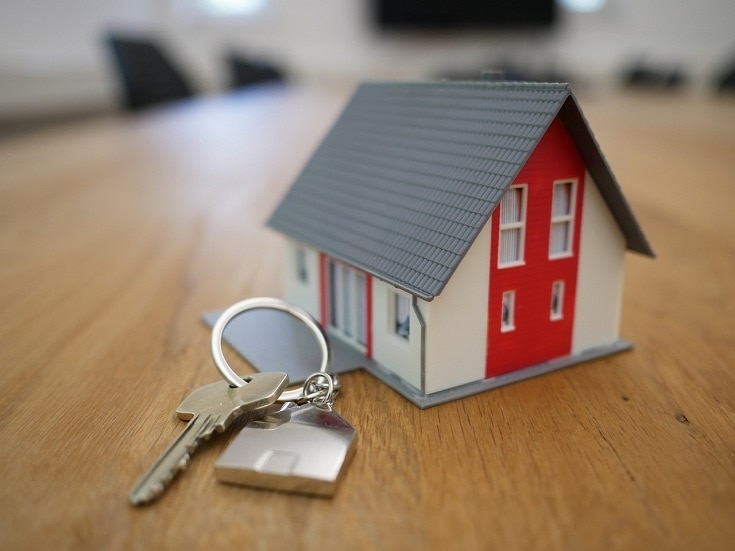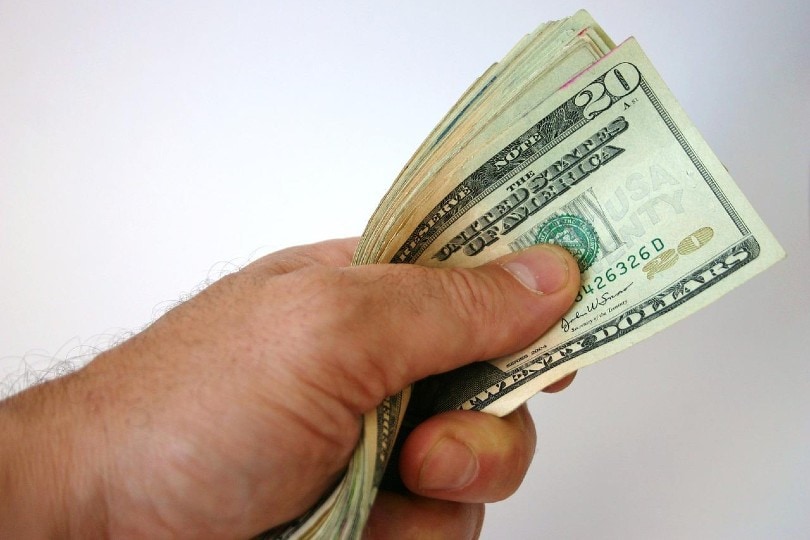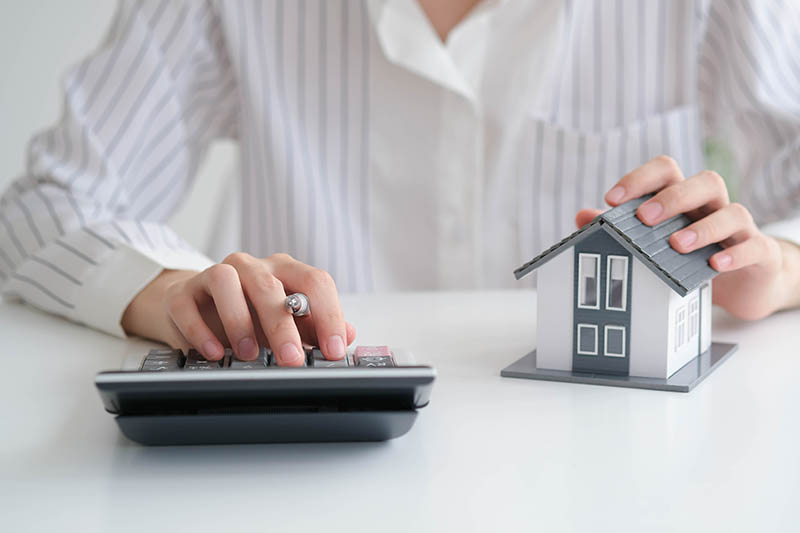What are Prepaid Costs When Buying a Home? Pros, Cons, & Differences
-
Pete Ortiz
- Last updated:

Buying a home is an exciting and rewarding milestone in life, but like many big purchases, some costs are easily overseen, which can turn an exciting event into something stressful. Being aware of the costs can help you prepare and make the journey of buying your home more enjoyable. The selling price of a home is more complex than you might think. There are always additional fees and costs in addition to the price tag, including prepaid and closing costs.
Buying a home is one of the biggest financial decisions a person can make, so to help relieve any additional stress, we’ll explain what prepaid costs are.
What are Prepaid Costs?

Prepaid costs, as the name implies, are cash payments made prior to making a down payment on a mortgage. These costs can act as a safety net for lenders. You will pay these costs, which will be put into an escrow account and held until they are needed. These expenses differ from your closing costs and are typically outlined in your mortgage loan estimate. Placing these funds into an escrow account will ensure that essential fees are paid, as failure to make payments for prepaid items may result in foreclosure.
What Are the Different Types of Prepaid Costs?
Prepaid costs when buying a home can include the initial escrow deposit, homeowner’s insurance premium, mortgage interest, and property taxes. These costs will only be estimates and should be provided by your mortgage company upfront. The prices can vary because you will have the final choice of insurance provider, your mortgage rate will fluctuate depending on when you close the loan, and you may have some tax flexibility. To better understand what prepaid costs involve, let’s look at each of them.
Initial escrow deposit: The initial escrow deposit is the final prepaid cost that should be factored into your mortgage. This deposit will be used to pay future homeowners insurance payments and property taxes. It is more of a security precaution, and some companies won’t require a deposit as it is usually over the prepaid closing costs.
Homeowners insurance premium: Most lenders require a year of premiums to be paid in advance to ensure that you continue to pay mortgage payments if anything happens to your home in the first year. Like other insurance, homeowners insurance rates will vary, so shop around for quotes to find the best one.
Mortgage interest: This is the interest that accrues between your closing date and the end of the month. The amount of interest you pay may vary depending on the time of the month you close and the interest rate. Choosing a closing date closer to the end of the month can reduce the interest you prepay. It’s collected as a prepaid expense so the lender can apply it to the first mortgage payment.
Property taxes: Your mortgage lender will also collect property taxes from you. The seller is responsible for any taxes owed while owning the home. On the last day of the year, you sign the final paperwork, and the rest of the year is your responsibility. This prepaid amount is deposited into your escrow account, which your lender will prepay property taxes.
What Is the Difference Between Prepaid Costs and Closing Costs?

Prepaid costs and closing costs can become confusing because they are typically paid at the same time. The closing costs are the fees you will pay for the services provided during the closing of your home. The payments from your closing costs will pay for all the service providers involved along the way, such as lawyers, lenders, appraisers, and title companies.
Another distinction between prepaid costs and closing costs is that the seller may pay the closing costs, but the buyer is always responsible for the prepaid amount.
Advantages of Buying a Home
Buying a home is an excellent long-term investment, and because you own the property, you can renovate it to your liking, which is a benefit that renters do not have the freedom to enjoy. A fixed mortgage rate also means your monthly payments will remain the same while rent increases. Fluctuating taxes and insurance premiums can affect the amount of the monthly payments, but this won’t happen as regularly as rent increases.
Owning a home also builds equity. The difference between what you can sell the house for and what you owe is your equity. Over time, more of your monthly payments will be applied to the loan balance rather than the interest, resulting in greater equity.
Disadvantages of Buying a Home

Buying a home can include high upfront costs, as we have discussed above, which can take some time to recover. Once you have recovered from those costs, there are also ongoing costs, such as maintenance, which you need to stay on top of to prevent lowering the value of your home.
Most of your mortgage payments go towards interest in the first few years, so your equity will take some time to grow. Owning a home also gives you less mobility. For example, if you are offered a great job in another country, selling your home can be long and expensive, which can influence your decision. If you rent, it’s easier to pack up and move.
Frequently Asked Questions (FAQs)
Are Prepaids the Same as Escrow?
Prepaid costs and escrow are not the same, but they are related. The deposits that are made for prepaid amounts are put into an escrow account. The escrow account may have more funds than the initial prepaid payments, but this is a security measure to cushion expenses and ensure funds are available when the payment is needed.
Will Every Mortgage Company Have the Same Prepaid Costs?

All mortgage companies provide only estimates, but your payments will be the same. Don’t choose a mortgage company based on these estimates, but rather by comparing interest rates, fees, and terms.
How are Prepaids Calculated?
To calculate your prepaid interest, divide your annual interest rate by 365 days. Then multiply that figure by the amount of your mortgage.
Can the Seller Contribute to Prepaids?
Some first-time buyers believe that the seller should contribute or be responsible for prepaid costs, but these costs are the buyer’s responsibility, except when a contract states that the seller will contribute to some of the costs.
Conclusion
Owning a home can be a worthy investment, but there are some important financial considerations to make as you begin your home-buying journey, such as prepaid costs. They are essentially fees that you will end up paying somewhere along the line, but by paying them early, they act as a safety net for lenders. Understanding how prepaid costs work will put you in control of your finances. You can now continue the exciting journey of purchasing your home without being surprised by prepaid expenses.
Featured Image Credit: TierraMallorca, Pixabay
Contents


